InspiRD continues to innovate to further improve R&D efficiency. Please click on the links below to discover:
- Digital Engineering: Connect disciplines, IT tools, and data through product life-cycle
- Accelerated Certification: Manage regulatory approvals in a changing environment
- Block-chain Secure Collaboration: Control your IP across a global supply-chain
- Hierarchical Platforms-Based Design: Drive design reuse and innovation transition
- Automated IT Cost-Benefit Analysis: Optimize deployment of engineering tools or ecosystems
- Enterprise Knowledge Planning: Bring the discipline and efficiency of ERP to R&D
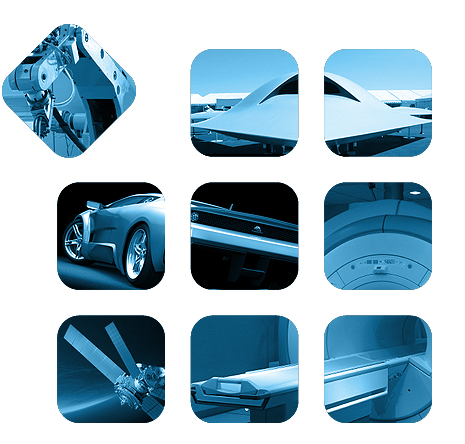
Digital Engineering (DE) is the use of digital artifacts, environments, processes, methods, tools, and workflows in the performance of engineering functions. DE expands data and model accessibility through the product life-cycle. By digitally connecting all aspects of development, DE reduces costs, minimizes defects, and improves reliability. DE streamlines planning, requirements, design, analysis, verification, validation, operation, and sustainment of any product.
Realization of these benefits require the deployment a Digital Engineering Ecosystem (DEE) bringing together people, tools, artifacts, and workflows. InspiRD is developing cutting-edge software for deploying DEE. We leverage recent advances in big data and cloud computing to ensure affordability and agility. Our DE software integrates with our extensive tools to manage engineering activity. These tools are supported by automated approaches to plan and manage DE investments.
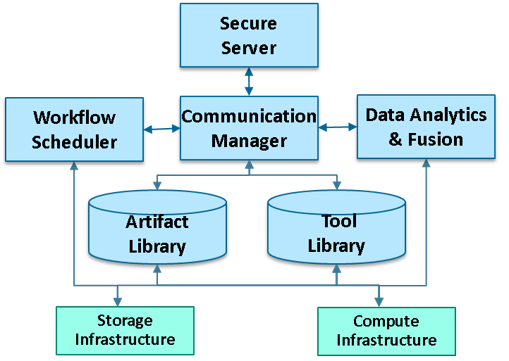
From aerospace to life-sciences, certifications and regulatory approvals are critical to getting products to customers. However, efforts to demonstrate compliance tend to be manual and rely primarily on expensive testing.
Under an Air Force innovation contract, InspiRD is developing a software portal to automate and accelerate certification. Our portal will simplify management of regulatory activities across multi-location development teams. We will enhance coordination in dynamic global supply-chains and enable:
- Precise evaluation of the certification impact of any feature
- Granular traceability of impacts of modifications
- Optimized testing and enhanced knowledge reuse
- Reduced reporting and documentation overhead
- Improved certification-related decision-making
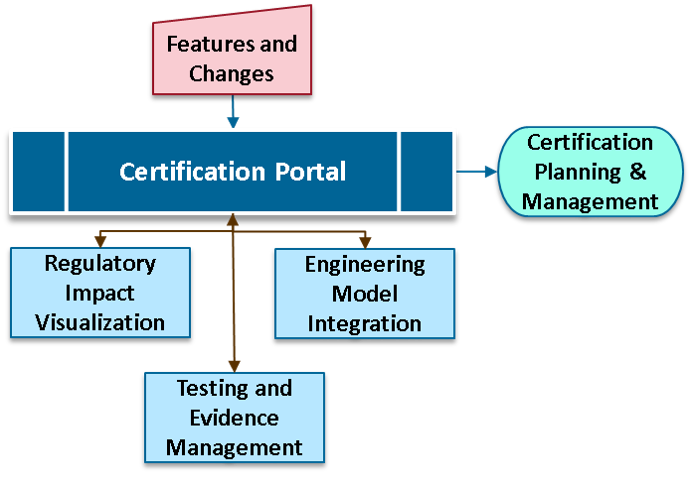
Block-chain Secure Collaboration
Controlling and tracking intellectual property in global supply-chains is a critical need for most organizations. InspiRD is leveraging advances in distributed ledgers (block-chain), big data, and cryptography for information security in multi-peer development ecosystems.
We leverage distributed ledgers built on permissioned block-chains that track document transactions, control access, and enable usage notifications. A secure information viewer ensures information integrity. A dynamic information manager secures information dissemination. Each participating organization will be able to control access dynamically based on users and document metadata.
Our tools will integrate into the existing information sharing workflow and minimize user retraining. InspiRD will drive collaboration through dynamic community formation. The improved trust among the ecosystem will increase information sharing and enhance innovation.
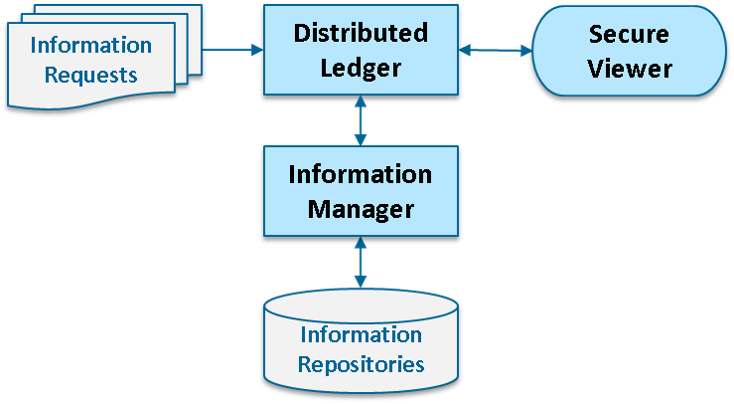
Automated IT Cost-Benefit Analysis
Efficient deployment of IT tools can enhance product development throughout product life-cycle. IT tools can help build communities and digital engineering ecosystems. New tools can reduce defects, streamline operations and enhance MRO by allowing numerical exploration of design space.
However, many architectures and approaches are available to deliver these benefits. Advanced IT and software tools often require significant investment. They also require changes to people and processes to produce results. A thorough analysis of costs and benefits, along with their impact over time is required to select the optimal path forward.
Under an Air Force innovation contract, InspiRD is developing automated tools to perform these cost-benefit analysis and develop business cases for each option. Our will tools provide meaningful insights and graphics to help executives decide the best path forward.

Reuse of technologies and modules across product-lines can improve efficiency of complex global product development:
- Respond rapidly to changing market needs
- Reduce time-to-market for future products
- Reduce manufacturing capital investments
- Improve cross-product synergy
Modular design has been shown to improve reuse. However, it also adds challenges:
- Up to 10x increase in upfront costs
- Reduced innovation because of interfaces and interactions
- Limits on module complexity and included technologies
- Rigorous libraries and tools needed to support reuse
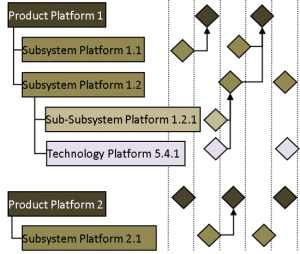
InspiRD has developed a new Hierarchical Platforms-Based Design (HPBD) approach that brings the library of reusable designs approach to all industries. HPBD brings Moore’s law-like increase in capability and reduction in cost to physical systems involving multiple technologies. HPBD builds a library of reusable designs without incurring additional costs, requiring large volumes, or standardized interfaces.
Successful innovation delivery in global supply-chains requires effective management. Management is challenging because development essentially is about generating new knowledge that is unstructured and scattered across tools.
InspiRD’s Enterprise Knowledge Planning (EKP) to connect tools in engineering ecosystems. EKP structures R&D knowledge and produces a reusable knowledge inventory. EKP brings efficiency, control and insight of ERP (Enterprise Resource Planning) to R&D:
- Respond rapidly to customer needs
- Leverage cross-product synergies
- Enhance collaboration and coordination
- Minimize surprise risks and overruns
- Reduce administrative overhead
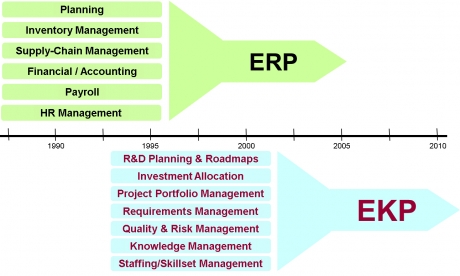
Just like ERP, the value of an integrated R&D management system is far greater than its individual pieces. EKP brings the discipline, repeatability and predictability of ERP to R&D and product development.
